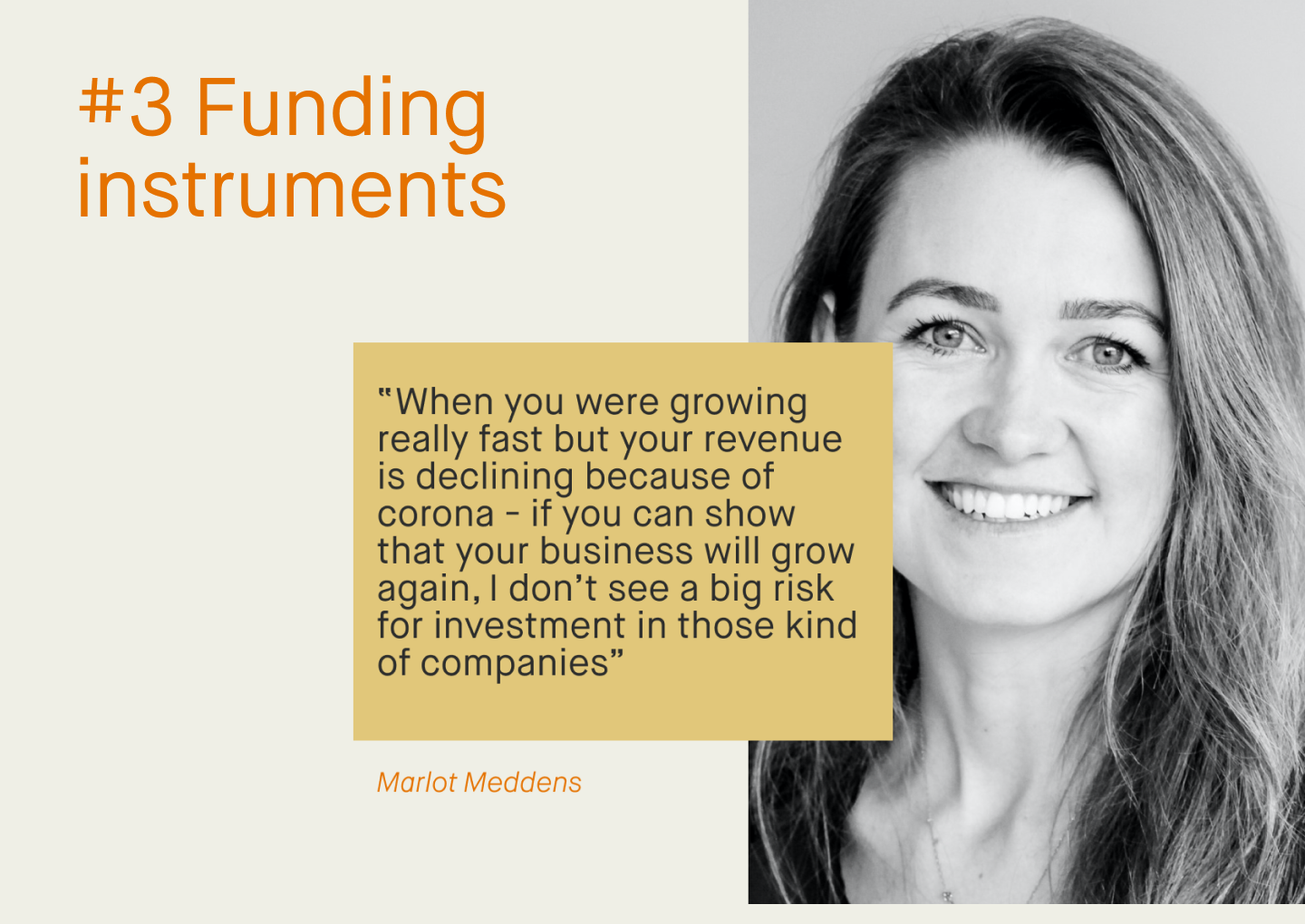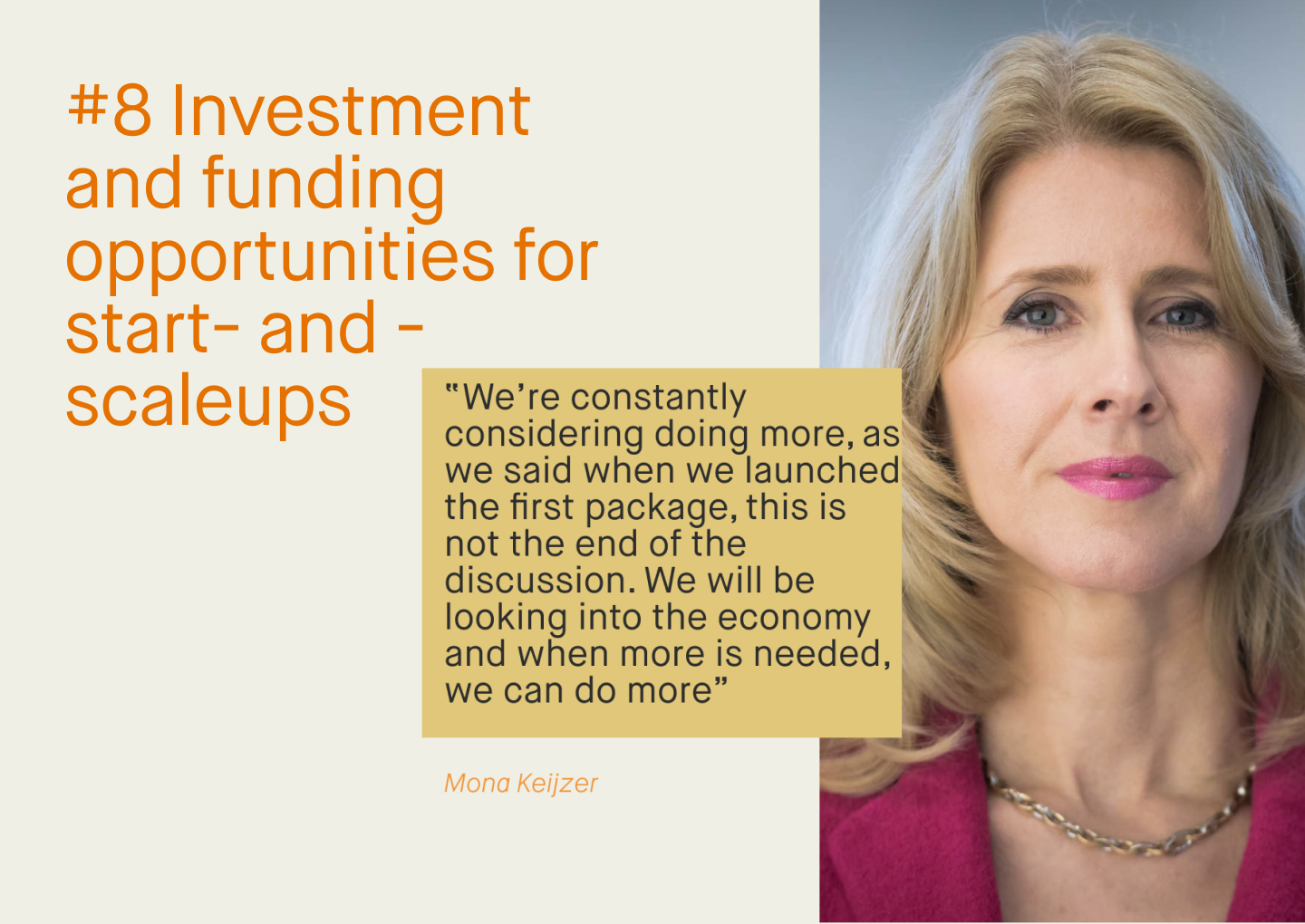Office hours #2: Preserving your business’ runway
Our second instalment of Office Hours features Steven Schuurman, founder and board member of Elastic and Marili ‘t Hooft, COO of WeTransfer and owner of FF Ventures.

In the third instalment of Office Hours, we provide practical advice in approaching funding opportunities, offering insight into what investors look for in a crisis.
Calling on their own experiences are Marlot Meddens, Investment Associate at Slingshot Ventures and Rinke Zonneveld, Executive Director at Innovation Quarter.
It comes as no surprise that right now, funding isn’t easy to secure - but that isn’t to say it’s completely off the table.
Rinke admits that while the process may have more hurdles, investors are still open to great ideas. “We do look at new propositions. What we look at, more than ever, is the entrepreneurship behind the team. What you see in our existing portfolio, some of these companies are hit hard but they have the flexibility to move fast. These are the kind of companies we truly believe in.”
Marlot agrees that despite setbacks brought on by the pandemic if an idea is strong enough, people will listen. “When you were growing really fast but your revenue is declining because of the corona - if you can show that your business will grow again, I don’t see a big risk for investment in that kind of companies.
Placing a fair valuation of your business is another enormous task. Valuations will naturally lower during a crisis, however, it’s still important not to undersell.
“Valuations will go down because the risk is higher than before. If you don’t really need funding now and you can wait until corona is less visible in the market, I think the valuation might go up - but of course, it’s not clear what’s going on in the next few weeks.” Marlot says.
Both highlight that this isn’t just a period where business leaders must be responsible, investors must also step up.
Marlot warns: “There are investors who say never waste a good crisis. As an entrepreneur, watch out for those. They will drop the valuation really low and have these strict terms, that normally you wouldn’t want in your company”
“There is more responsibility for us as investors because overnight the power balance has shifted. If you’re there in good times you should be there in bad times as well.” Rinke adds.
Ultimately any investor should naturally want what is best for a business they have stakes in. Rinke insists that if a company is doing all they can, then investors are likely to be receptive.
“If it’s clear milestones are not being hit because of the current situation, we have to be flexible. That’s also a call from me, don’t say that your underperformance is because of this situation if it isn’t.
“We’re here to help, we’re not in it for the short-term but it has to be clear that they have taken all necessary measures.
“About 95% of investors do the right thing but we all hear in the market, of some of the bad examples - I hope that all investors shoulder more responsibility.”
In the previous instalment of Office Hours, Marili ‘t Hooft, COO of WeTransfer and owner of FF Ventures suggested now is the time to refocus and prioritise cash flow - advice which Marlot reiterates.
“Almost all companies I talk with are adjusting. Almost all the marketing is changing, it’s not the normal message they’re sending to their customers. In this time, you see some entrepreneurs rising up and being creative.”
Rinke stresses the need to also assess your current financial setup. “I would start with looking very deeply into my own financial model, looking where I could cut costs without hurting my midterm outlook. For most companies, there are numerous possibilities for cost-cutting.”
Asking anyone to form a prediction for the next few months isn’t easy, though Rinke remains positive. “There’s a huge difference between this and 2008. The 2008 crisis was because of structural imbalances within our economy. There are no structural imbalances in the current situation. It’s an external factor that has brought us into this”
“What I expect from my own experience when this is over, we will see a lot of very quick recoveries. We will see the growth figures higher than before. What we need now are measures to help us survive these months ahead of us.”
The message from both is clear. Despite the uncertainty, strong ideas and strong people can still attract the investment they need. As an entrepreneur, you must ask, are you doing enough to stand out - and is your business’ vision clear, despite the circumstances?

Our second instalment of Office Hours features Steven Schuurman, founder and board member of Elastic and Marili ‘t Hooft, COO of WeTransfer and owner of FF Ventures.

In this episode of Office Hours, we welcome Mona Keijzer, Secretary of State for Economic Affairs and Climate Policy and Wouter Bos, CEO of

In a time of global crisis, managing morale can be incredibly tough. Employees and businesses everywhere face growing uncertainty over their futures, meaning your approach to motivation looks very different than it did six months ago.